The famous American think tank Pew Research has published a new survey about attitudes to climate change.
In Response to Climate Change, Citizens in Advanced Economies Are Willing To Alter How They Live and Work
Over the last six years Westerners have become increasingly concerned about the effects of climate change on people's personal lives. Oddly the Japanese don't follow this trend.
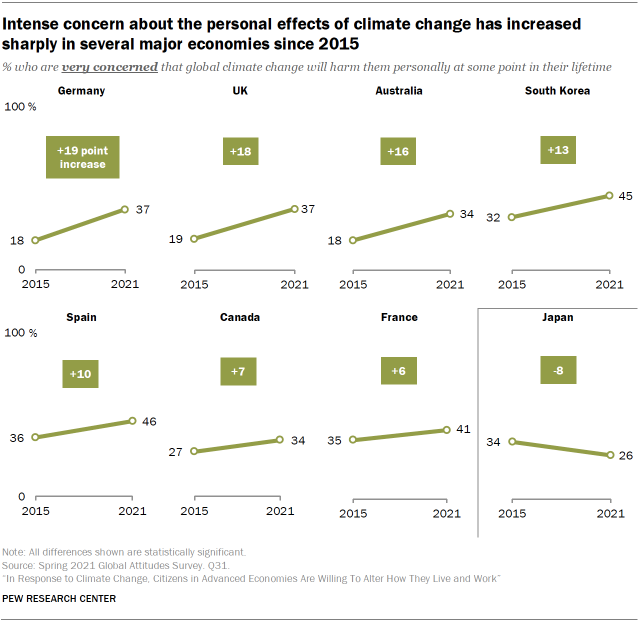
Unsurprisingly younger people are more worried about climate change than older adults as they will have to live with it for longer and experience stronger natural disasters and harsher economic consequences. Only in Greece and South Korea, where 87% and 88% of the population are concerned (the highest levels in the survey) are younger people less worried than their elders (but still more worried than in other countries, except for younger French people). Swedes are probably right to believe that climate change is less likely to harm them personally, as they might actually be one of the few northern countries where climate change 'might' make the local climate milder and more conmfortable.
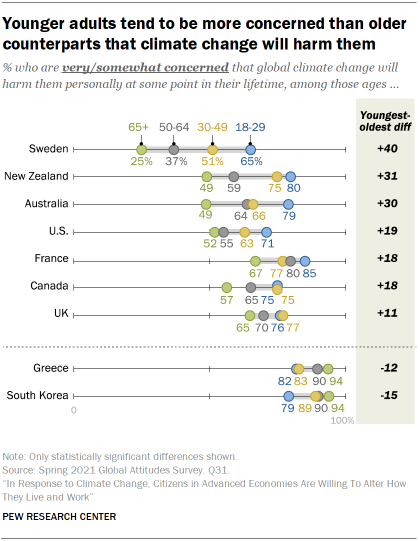
Political ideology influences how one sees climate change, but nowhere is this more pronounced than in the United States, where the gap between the Left and Right is nearly 50%! That isn't because American Leftists are more distressed than the global average, but because Right-wingers are far more likely to be climate change skeptics or deniers. No other country has any political group with less than 50% of members worried about climate change. That's unique to the US Right.
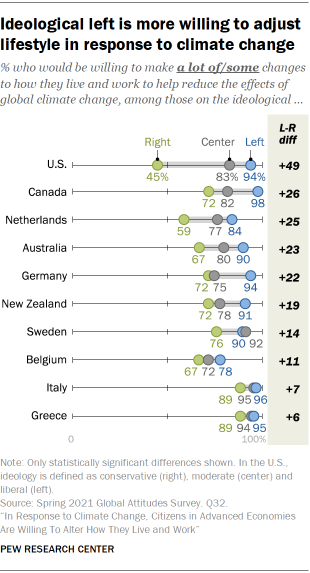
The good news is that most people, even in the USA, are willing to make at least some changes to their lives to help reduce the effects of climate change. Apart from Japan, over two thirds of people surveyed said they would be willing to make some or a lot of changes about how they live and work.
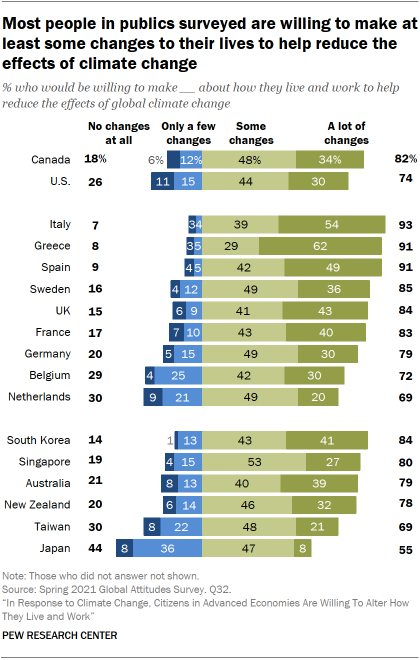
Obviously young people are more willing to adapt their lifestyle as their brain is more flexible and they are less set in their ways. There is no exception, but the gap between young and old is most marked in France and least in Italy.
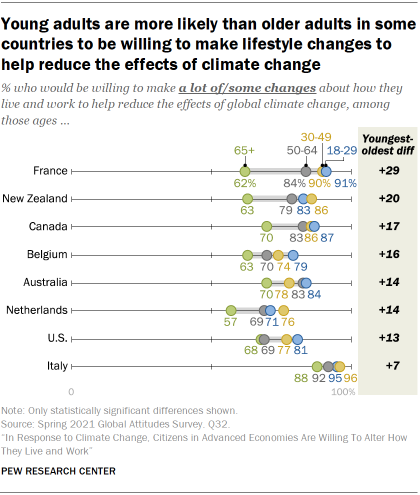
More educated people are also substantially more willing to make some/a lot of changes to their lives, presumably because they understand better the seriousness of climate change (confirmed by other studies), but also because their brain is more adaptable (adaptability correlates with higher IQ).
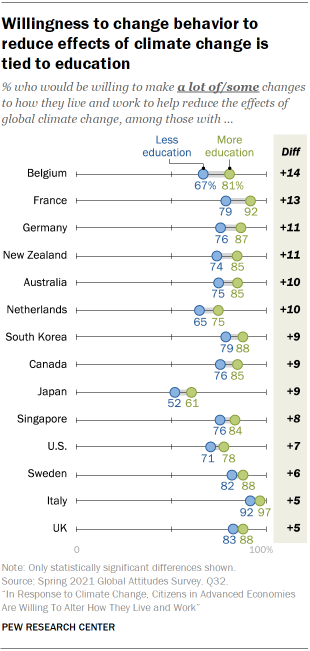
In Response to Climate Change, Citizens in Advanced Economies Are Willing To Alter How They Live and Work
Over the last six years Westerners have become increasingly concerned about the effects of climate change on people's personal lives. Oddly the Japanese don't follow this trend.

Unsurprisingly younger people are more worried about climate change than older adults as they will have to live with it for longer and experience stronger natural disasters and harsher economic consequences. Only in Greece and South Korea, where 87% and 88% of the population are concerned (the highest levels in the survey) are younger people less worried than their elders (but still more worried than in other countries, except for younger French people). Swedes are probably right to believe that climate change is less likely to harm them personally, as they might actually be one of the few northern countries where climate change 'might' make the local climate milder and more conmfortable.

Political ideology influences how one sees climate change, but nowhere is this more pronounced than in the United States, where the gap between the Left and Right is nearly 50%! That isn't because American Leftists are more distressed than the global average, but because Right-wingers are far more likely to be climate change skeptics or deniers. No other country has any political group with less than 50% of members worried about climate change. That's unique to the US Right.

The good news is that most people, even in the USA, are willing to make at least some changes to their lives to help reduce the effects of climate change. Apart from Japan, over two thirds of people surveyed said they would be willing to make some or a lot of changes about how they live and work.

Obviously young people are more willing to adapt their lifestyle as their brain is more flexible and they are less set in their ways. There is no exception, but the gap between young and old is most marked in France and least in Italy.

More educated people are also substantially more willing to make some/a lot of changes to their lives, presumably because they understand better the seriousness of climate change (confirmed by other studies), but also because their brain is more adaptable (adaptability correlates with higher IQ).


